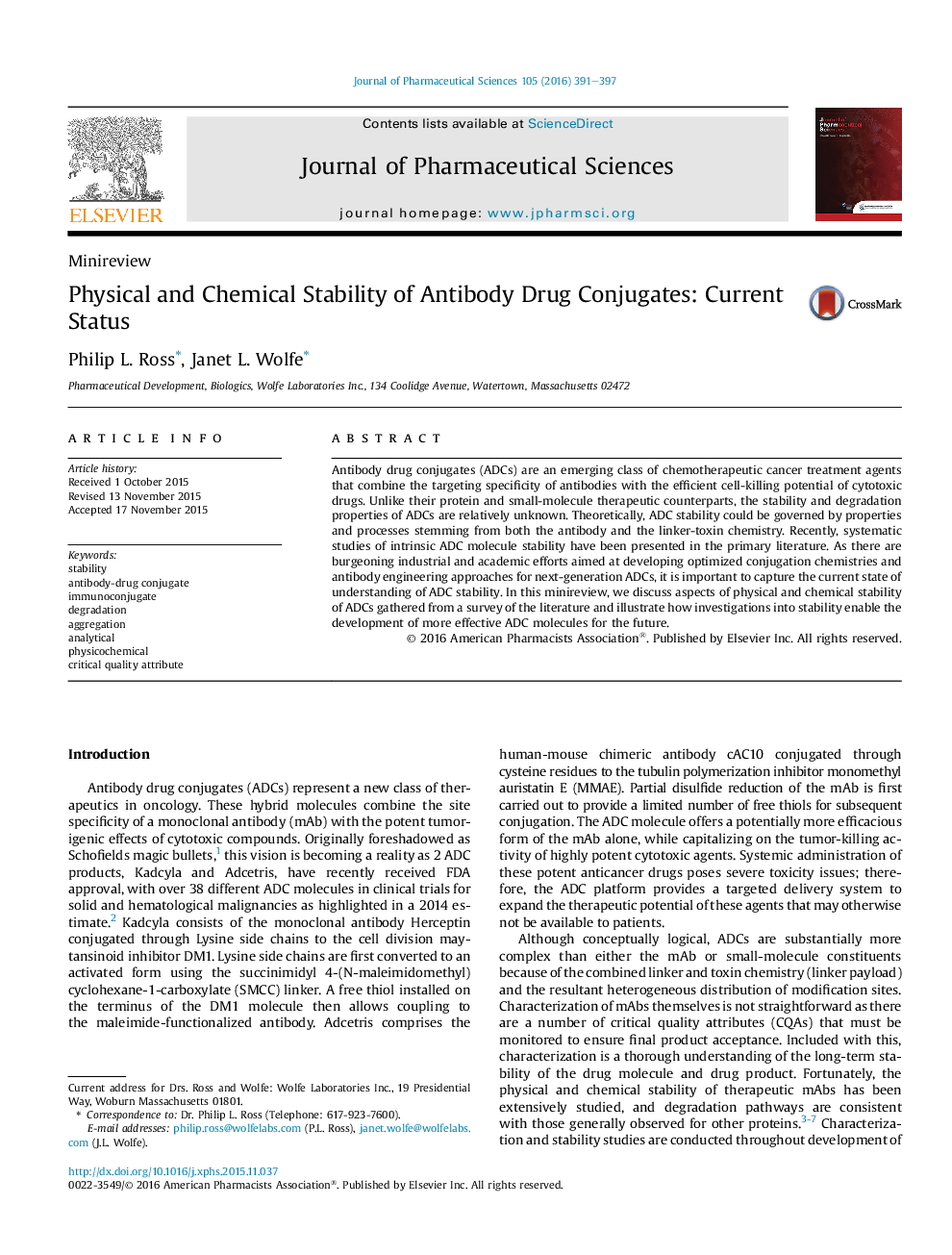| Article ID | Journal | Published Year | Pages | File Type |
|---|---|---|---|---|
| 2484240 | Journal of Pharmaceutical Sciences | 2016 | 7 Pages |
Abstract
Antibody drug conjugates (ADCs) are an emerging class of chemotherapeutic cancer treatment agents that combine the targeting specificity of antibodies with the efficient cell-killing potential of cytotoxic drugs. Unlike their protein and small-molecule therapeutic counterparts, the stability and degradation properties of ADCs are relatively unknown. Theoretically, ADC stability could be governed by properties and processes stemming from both the antibody and the linker-toxin chemistry. Recently, systematic studies of intrinsic ADC molecule stability have been presented in the primary literature. As there are burgeoning industrial and academic efforts aimed at developing optimized conjugation chemistries and antibody engineering approaches for next-generation ADCs, it is important to capture the current state of understanding of ADC stability. In this minireview, we discuss aspects of physical and chemical stability of ADCs gathered from a survey of the literature and illustrate how investigations into stability enable the development of more effective ADC molecules for the future.
Keywords
Related Topics
Health Sciences
Pharmacology, Toxicology and Pharmaceutical Science
Drug Discovery
Authors
Philip L. Ross, Janet L. Wolfe,
